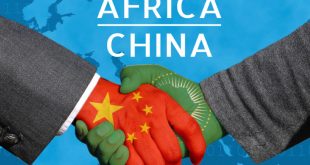
Today, COVID-19 is devastating the world. It’s in the process of infecting many (perhaps even most) of us, killing some, shutting down our normal social relations, halting most international travel, and clobbering our economies and trade. What will the world be like a few years from now, after this acute crisis has waned?
Diseases vary in their potential to be prevented by vaccines.
Some vaccines-against smallpox and yellow fever, for example-do provide protection for decades or for life; against flu, however, they do so for less than a year. And there are still no vaccines against malaria and AIDS, despite huge efforts having been invested in their development. Flu viruses frequently mutate, or their various strains change in proportion, so that a new vaccine must be developed each year. And whereas polio and smallpox vaccines protect everyone, flu and cholera vaccines protect only about half of those who receive them. Hence the efficacy of hoped-for COVID-19 vaccines is impossible to predict.
But let’s assume that COVID-19 vaccines will be effective. How will that change the world? Scientists in many countries-including China, the United States, Russia and Britain-have developed them. Which suggests a worst-case scenario, a best-case scenario, and everything in between.
There are already many signs of an incipient worst-case scenario. Even though some countries have developed vaccines, 7.7 billion doses for the world’s 7.7 billion people cannot be manufactured and distributed worldwide overnight. Common-sense proposals stipulate that the first doses must be reserved for medical personnel, because everybody else needs those medical personnel to administer the doses to the rest of us, and to take care of sick people. Among those of us who are not medical personnel, rich, influential people can be expected to find ways to acquire doses before poor, uninfluential people.
But those selfish considerations apply just to the allocation of doses within the country that develops an effective vaccine first. There is likely to be international selfishness as well. Such prioritizing has already happened with respect to face masks: a few months ago, when those masks were scarce and some shipments from China reached Europe, scrambles and bidding wars ensued as countries sought to secure those supplies for themselves.
On reflection, though, selfish national policies are suicidal. Even in the short run, no country can achieve lasting COVID-19 security for itself by eliminating the disease within its borders. In today’s globalized world, COVID-19 would just come back into such a country from others that had not eliminated the virus.
That has already happened to New Zealand and Vietnam, where stringent measures did stop local transmission, but returning travelers have continued to import new COVID-19 cases. This illustrates a key conclusion: no country will be safe from COVID-19 until all are. It’s a global problem demanding a global solution.
I take that fact as good news. We face other global problems demanding global solutions: especially climate change, worldwide resource depletion, and the destabilizing consequences of inequality across countries in our globalized world. Just as no country can keep itself free of COVID-19 forever just by eliminating the virus within its borders, no country can protect itself against climate change just by reducing its reliance on fossil fuels and reducing its own emissions of greenhouse gases. Atmospheric carbon dioxide, like COVID-19, does not respect political borders.
But climate change, resource depletion, and inequality pose far more serious threats to our survival and quality of life than the current pandemic does. COVID-19 is a bagatelle, compared to the dangers that climate change, resource depletion, and inequality imply for all of us.
Why, then, haven’t we been galvanized to act against climate change and those other global threats, when we are being galvanized by the milder threat of COVID-19? The answer is obvious: COVID-19 catches our attention, by sickening or killing its victims quickly (within a few days or weeks) and unequivocally. In contrast, climate change ruins us slowly and much less clearly, through indirect consequences such as reduced food production, starvation, extreme weather events, and the spread of tropical diseases into temperate zones. Hence, we have been slow to recognize climate change as a global threat requiring a global response.
That’s why the COVID-19 pandemic gives me hope, even as I mourn the loss of dear friends whom it has killed. For the first time in world history, people around the world are being forced to acknowledge that we all face a shared threat that no country can overcome by itself. If the world’s peoples join together, under compulsion, to defeat COVID-19, they may learn a lesson. They may become motivated to join together, under compulsion, to combat climate change, resource depletion, and inequality. In that case, COVID-19 will have brought not only tragedy but also salvation, by finally setting the world’s peoples onto a sustainable course.
The author is a professor of geography at the University of California, Los Angeles, is the Pulitzer Prize-winning author of Guns, Germs, and Steel, Collapse, and other international bestsellers.
 Africa -China Review Africa -China Cooperation and Transformation
Africa -China Review Africa -China Cooperation and Transformation
